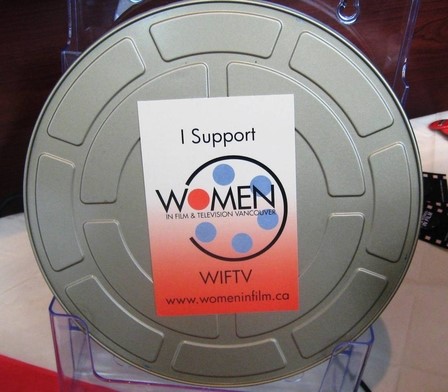Facts and Fiction About Women in the Film Industry
The place is The Grind and Gallery Coffee Bar in Vancouver, BC. The event, a networking session organized by Women in Film and Television (WIFTV) and held on the third Tuesday of every month—no pre-registration necessary.
Hosted by Deb Sears—Actor at Vancouver Talent Management—the guest speaker is Katherine Monk—a member of the Alliance of Women Film Journalists—who shares her views on the reality of women in filmmaking.
After 20 years in the media, Katherine Monk speaks her mind. Not that she never did before, but her recent participation at the Toronto International Film Festival (TIFF) highlighted a fact that is music to her ears. In this male-dominated industry, women in film are trending again.
Monk sees it as the third and perhaps the fourth wave of women calling the shots. Although concern lurks while women try to survive the crash through the infamous glass ceiling, they continue to narrow the gap in gender parity in the media industry. What would a veteran tell a mixed audience of women seeking not only networking but also mentoring? Facts.
The Facts
- In industry circles, the female filmmaker is of questionable status. Not men.
- Women seem to make tactical errors, leading to elusive careers.
- Success is all about optics, what you are projecting.
- Women need to own the entitlement of being as creative as men.
- TIFF saw a three-fold increase in female participants this year.
- Unlike in previous years, women entered more narratives than documentaries.
How to Dispel and Debunk the Fiction
On the one hand, gender inequity drags women filmmaking down. Any film categorized as a “woman’s story” gets a lesser profit margin. On the other hand, the majority of the theatre-going audience consists of women between 35-45 years of age. So, shouldn’t women produce films for their audience? Since women love stories about women, “Make Oprah stories,” Monk says, because “success in the visibility means nothing.” What Monk means is, make something for the joy of it, for its life meaning, do what you like because you will find a niche market. She reflects on the success of Precious, a dark story for women that has struck a chord at the box office.
Furthermore, after women make their first movie, they face a roadblock to the second one. Female filmmakers think they have to appeal to the same audience and try to make a similar type of film. If women engage in the story of their film, whatever the subject, their passion will come through and the community will follow.
Women have notoriously had trouble getting financing, an excuse that Monk now throws out. “Find capital yourself,” she says, “capitalize on new times since technology allows you to make films on a small budget.” Besides, from a technical angle, “even an eight-year-old could cut a movie today.”
The Female Ego in the Way of Creative Instincts
She points to women’s innate insecurity. They ask for outside validation whereas their work should be about creating their own world. Instead of thinking about what might be expected of them, they should focus on a film project that will stir their passion. Born to procreate, women should trust their creative instincts.
Monk gives the example of a lawyer disillusioned by her profession as she handles class-action lawsuits. She decides to use her voice and make a film exposing the scandalous nature of such cases. It became an independent film success because her cathartic passion came through.
A topic discussed at a forum of Women in View had addressed the competitive nature of women and their lack of mutual support. Monk echoes the issue once more, pointing out that another woman’s success isn’t a threat to yours and should instead be supported as a stepping-stone.
Crisis in the Media and the Power of Networking
According to Monk, there was a major problem with Canadian media at TIFF this year because the industry is changing.
A journalist, Monk says “there is no future in journalism anymore.” Filmmakers have to cover all aspects of their work because “there is no waiting for someone to make a profile of you anymore.”
First published 2011 Suite101.com

